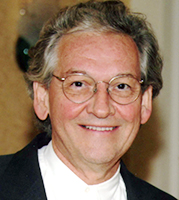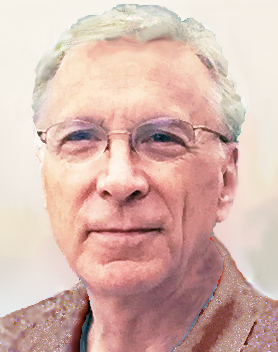Here’s a guest post by John Gillis, followed by a brief additional comment by me.
— HB
 Knowing and Not Knowing What a President Would Do
Knowing and Not Knowing What a President Would Do
by John Gillis
Knowledge is the key to any electoral judgment: one decides how to vote by means of applying one’s political philosophy to specific items of knowledge about the candidates. But in the case of Trump, most people don’t understand yet that it is impossible to gain knowledge of any sort about what he would do if elected.
One can roughly gauge what an Obama will do, or what a Clinton (female version), or George Bush, or Romney, etc. will do, because each of them has presented the thrust of their view of life in their speeches, their past actions, etc. They are conservative, or liberal, or Marxist, or pragmatist-liberals, or religious conservatives, and so on. So, while one can’t ever predict the detailed outcomes of a given future presidency, it is not shocking if an Obama or a Clinton tries for universal socialist health care or for forcing people to act against their religious beliefs (funding contraception/abortion if you are nuns), or for trying to jail businessmen for committing acts of economics. It is not shocking that a Bush II would advocate and sign a major pharmaceutical welfare entitlement, or that Bush I would advocate and sign the draconian ADA law, or that he might cave on major new taxes wanted by the Dems; or that Reagan would try to reduce government (but fail); or that any Republican would try to jail businessmen for committing acts of economics.
Trump is unusual in the history of American candidates in that he is an epistemological blank: you cannot predict what he will do or say by referring to his previous ideas or behavior. Anyone who casually looks over the past many months of Trump’s candidacy will see that Trump holds no firm views on anything. He has flip-flopped on so many issues, even in the same week, day, hour or sentence. Clearly, he has no core principles on virtually any topic. Other candidates flip-flop occasionally, and that is important; but Trump represents a difference in kind, not degree.
What he would do as President is completely unknown.
E.g., If Putin disses him, will that lead to a U.S. war in the Ukraine or Syria, because President Trump now regards Putin’s statements as an affront to his majesty-or will it not lead to a war? Who knows?
Will Trump try to stop Apple from making phones in China or Thailand, and force them to make them in Nevada? Or will he force Apple to pay a “fee” for continuing to make phones in Asia instead of Nevada? Who knows?
Will he shoot someone in broad daylight on Fifth Avenue to see if he can really get away with it, as he has claimed he could? Who knows?
Will Trump issue an executive order setting a minimum wage at $15 or $5? Who knows?
Will he “enhance” our proto-KGB, also known as the IRS, to deal with his enemies, such as those Republican donors who rejected him? Who knows?
Will he choose terrible or good Supreme Court Justices? Who knows?
Never mind the legality of any of the President’s actions in these examples; already, during the past 7 years, we’ve had a substantial number of illegal presidential actions. Those precedents will take a long time to reverse, if our country ever has the will to do so.
Trump as President would be a Nixon on steroids. If Nixon, a so-called “conservative,” could impose wage and price controls, by fiat, then we can count on Trump to do things many times worse. Remember that it was Nixon who created the malignant EPA and destroyed the last vestige of fixed-ness of our currency, by abandoning even the watered-down gold connection. Because there is no way to rationally predict what Trump might do on any political or economic topic, Trump, as president would likely take actions even more outrageous.
Nixon was an arch-pragmatist. While he had some tenuous hold on conservative ideas (mostly the bad kind), he was ideologically a loose cannon. Well, Trump can’t even be called a loose cannon, because that phrase is seriously inadequate to describe the truly chaotic character of his mind and his decisions. Even a loose cannon obeys the laws of physics, but a person with a chaotic mind can deliver a level of subjectivism that makes
one wish for the simplicity of cannons careening down a hill.
Trump is the Chaos Candidate. The only thing we can know about the nature of his future actions as president is that they would come from massive subjectivism and bring chaos.
On a political (not an epistemological) level, Hillary Clinton as president would at least face major opposition from what remains of the Republican Party. But with a Trump Presidency, most Republicans would be neutered, providing Trump with free rein to destroy the economy, our foreign policy, and our freedoms. (This does not imply in the slightest that I am advocating voting for Clinton.)
Choosing Trump, as the lesser of two evils, would be terribly mistaken.
Trump is in a different category. His nihilism and his utter mental chaos means that his future path is unknowable. For the sake of one’s moral conscience and mental hygiene, one should not vote for Trump.
 Trump is a new level of bad
Trump is a new level of bad
By Harry Binswanger
If it’s Trump vs. Hillary, I will either not vote, or vote for Hillary.
Yes, Hillary is bad in many ways, but is she worse than Obama? or than many previous presidents?
Trump is not just, like Hillary, a despicable candidate. Trump brings to the presidential race a new kind of bad: spiteful, adolescent bullying (“Little Marco,” “Lyin’ Ted”) combined with ignorant, demagogic hostility toward scapegoats. His modus operandi, and probably his actual belief, is that every social problem is due to the actions of “them”–Mexicans, Chinese, women, etc.
Trump is the proverbial “man on a white horse,” a Führer figure, who asks us to substitute for ideas, his claims to personal shrewdness, talent at conniving, and strength. Hillary wants to turn America into France. Trump wants to turn America into . . . what? Argentina under Peron?
Trump’s campaign slogan is: “Make America Great Again.” But Trump himself has no idea of what constitutes the “greatness” that he wants to restore. Yet, he’s seeking unlimited authority to achieve that unspecified end. He has no standard, no political ideology, no principles, no consistency–not even over the course of an hour. He brandishes a new level of pragmatism: not merely opposition to principles, but unawareness of there being such a thing as principles. Even Nixon, the pragmatist’s pragmatist, is caught on tape saying about one aspect of the Watergate coverup, “No–it is wrong that’s for sure.” (Presidential Transcripts, first meeting of 3/21/73). Trump doesn’t even know about such things as right and wrong.
Having no intellectual framework, no moral framework, no abstract understanding of alternative courses of action, Trump lurches about at random. Since random actions produce destruction not improvement, a Trump presidency could only wreak havoc on this country. John Gillis is right: Trump is The Chaos Candidate.
Trump as president could damage America much more than Hillary ever could. It’s not only the practical disasters he can visit upon us, a Trump victory would carry and amplify a lethal philosophic message: Don’t think, just trust in a strongman.
Adherents of a philosophy upholding rationality as the essence of moral virtue can do nothing but shudder at the prospect.

 Knowing and Not Knowing What a President Would Do
Knowing and Not Knowing What a President Would Do Trump is a new level of bad
Trump is a new level of bad